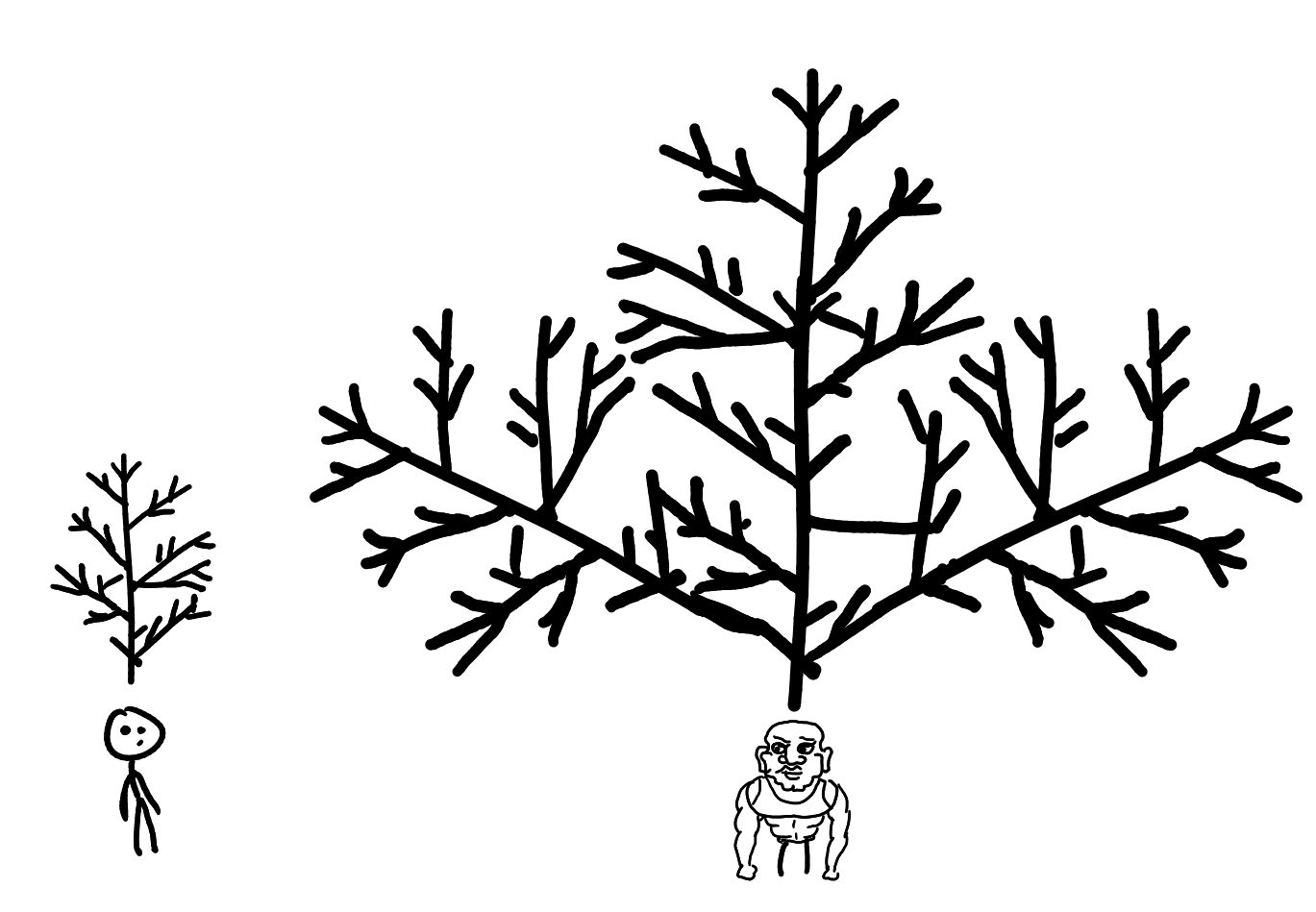
We can look at our studies and experience in various fields of work as branches of a knowledge tree. We could grow it taller - dedicate more of our time to a single subject, or broaden it - play around with other disciplines and skills.
At a certain point, the distance between the branches becomes small enough that our brain makes a connection (we catch an insight). When our knowledge is vast - it’s easy to find parallels and make new connections. It pays off to look further than your area of study or work, say, at philosophy, physics or biology for an IT guy.
Talking about two branches of a tree getting connected, the notion of parallels between what we already know and what we are learning is also drastically important. My favorite teachers had one thing in common - they could teach university subjects to a nine-year-old by hooking all new information onto what is already known - finding parallels.
Actually, most of our knowledge comes from building equivalence relations, so to speak. The simplest example is finding translations of words in a foreign language - we learn the language by finding equivalents for familiar words, but that is trivial. Further along the way we find out which words and phrases are not equivalent - that is when we find new knowledge. We look deeper - at context and meaning (our knowledge tree has grown).
Funny enough, equivalence is also a building block for abstraction in algebra and logic. It is the instrument we use to move from the plane of easily visualized, “well-known” objects and ideas to the plane of abstract notions and theories.